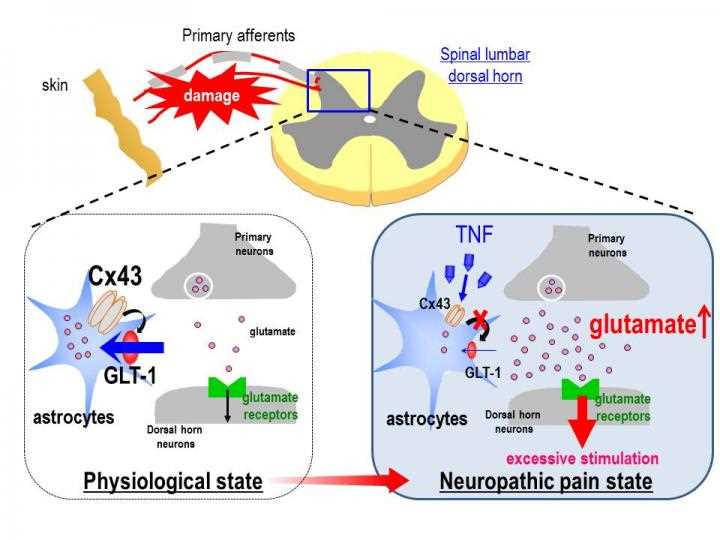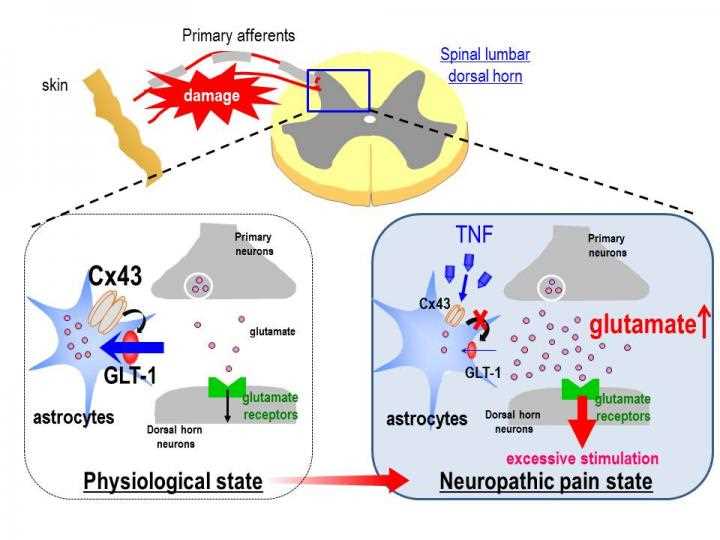
Exploring the intricate processes that contribute to the alleviation of nerve-related discomfort can shed light on the effective solutions available. With an aim to comprehend the underlying mechanisms, researchers have delved into the fascinating realm of addressing neuropathic pain with the help of pharmaceutical solutions. One such remarkable drug, whose profound impact on patients experiencing nerve-related discomfort cannot be overstated, is amitriptyline.
Amitriptyline is a pharmacological agent that has been thoroughly studied for its role in providing significant relief from neuropathic pain. Its efficacy in treating various forms of discomfort has made it a valuable tool in the medical arsenal for managing these conditions.
Exploring the effects of this remarkable drug points towards intriguing insights into the pathways that amplify pain. By acting on specific receptors, amitriptyline effectively targets the intricate circuitry responsible for the perception and transmission of nerve-related discomfort. Furthermore, its ability to modulate certain neurotransmitters and receptors contributes to the overall reduction of this debilitating sensation.
Intriguingly, the mechanism of action of amitriptyline goes beyond solely addressing pain sensation. Through its multifaceted actions, this pharmaceutical agent has also been found to potentially alleviate associated symptoms such as depression and anxiety, which often accompany neuropathic pain.
As our understanding of the intricate mechanisms behind the effectiveness of amitriptyline in managing neuropathic pain expands, so does our ability to develop targeted therapies that can provide relief to those in need. By gaining insight into the complementary pathways affected by this remarkable drug, researchers strive to open up new avenues of treatment and improve the quality of life for countless individuals battling nerve-related discomfort.
The Role of Amitriptyline in Managing Neuropathic Pain: Mechanisms and Benefits

Neuropathic pain is a challenging condition that affects the nervous system and can have a significant impact on an individual’s quality of life. It is characterized by a range of symptoms, including burning, shooting, or stabbing sensations, numbness, and tingling. Traditional pain medications are often not effective in treating neuropathic pain, which is why alternative approaches are needed.
Amitriptyline, a tricyclic antidepressant, has shown promise in managing neuropathic pain. It works by modulating the levels of certain neurotransmitters in the brain, including serotonin and norepinephrine. By doing so, it can help to alleviate the symptoms and improve the overall well-being of individuals suffering from neuropathic pain.
One of the benefits of using amitriptyline for neuropathic pain is its ability to target both the physical and psychological aspects of the condition. It not only helps to decrease pain intensity but can also improve sleep quality, reduce anxiety and depression, and enhance overall mood. This holistic approach to managing neuropathic pain can have a profound impact on a person’s overall well-being and quality of life.
It is important to note that amitriptyline should be used under the guidance of a healthcare professional. They will consider various factors, such as the severity of the pain, the individual’s medical history, and any potential drug interactions. Additionally, like any medication, amitriptyline can have side effects, such as drowsiness, dry mouth, and constipation. However, these can often be managed with proper monitoring and adjustments to the dosage.
In conclusion, amitriptyline plays a crucial role in managing neuropathic pain by targeting the underlying mechanisms and providing a range of benefits. Its ability to address both the physical and psychological aspects of the condition makes it a valuable option for individuals dealing with neuropathic pain. However, it is important to consult with a healthcare professional to determine the most appropriate treatment plan and ensure the safe and effective use of amitriptyline.
Understanding Neuropathic Pain and its Impact
Neuropathic pain is a complex and debilitating condition that affects millions of people around the world. It is a chronic pain caused by damage or dysfunction to the nerves, resulting in intense sensations such as burning, shooting, or electric shocks.
Neuropathic pain can have a profound impact on a person’s quality of life, causing physical discomfort, emotional distress, and limitations in daily activities. It can affect mobility, sleep, and overall well-being, leading to decreased productivity and increased healthcare costs.
The Challenge of Treating Neuropathic Pain
Addressing neuropathic pain is a challenge for medical professionals due to its complex nature and individual variability. Traditional pain medications, such as opioids, are often ineffective or provide only partial relief, and their long-term use can lead to side effects and addiction.
However, there is hope. Research has shown that certain drugs, like amitriptyline, can effectively manage neuropathic pain by targeting specific mechanisms in the nervous system without the risk of addiction. Understanding how amitriptyline works on neuropathic pain can provide insights into its potential benefits.
How Amitriptyline Works on Neuropathic Pain
Amitriptyline is a tricyclic antidepressant that has been repurposed to treat neuropathic pain. While its exact mechanism of action is not fully understood, it is believed to work by increasing the levels of certain neurotransmitters, such as serotonin and norepinephrine, in the brain.
This increase in neurotransmitters helps regulate pain signals and reduce the hypersensitivity of the nerves. By modulating the chemicals involved in pain perception, amitriptyline can alleviate neuropathic pain and improve the overall quality of life for individuals suffering from this condition.
Conclusion
Understanding the mechanisms through which amitriptyline works on neuropathic pain is crucial for healthcare professionals and patients alike. By targeting specific neurotransmitters in the brain, amitriptyline offers a potential solution for managing neuropathic pain and improving the lives of those affected by this debilitating condition.
Mechanism of Action: How Amitriptyline Works on Neuropathic Pain
When it comes to managing neuropathic pain, understanding how medications work is essential. Amitriptyline, a medication commonly used for this purpose, operates through a unique mechanism of action that helps alleviate the symptoms associated with neuropathic pain.
Blocking the Reuptake of Neurotransmitters
One of the key ways amitriptyline works is by blocking the reuptake of certain neurotransmitters in the brain. By inhibiting the reuptake process, amitriptyline allows these neurotransmitters to remain in the synaptic cleft for a longer period of time.
This extended presence of neurotransmitters, such as serotonin and norepinephrine, can help regulate mood, reduce sensitivity to pain, and improve sleep patterns, all of which are important factors in managing neuropathic pain.
Modulating Nervous System Activity

Amitriptyline also acts as a modulator of nervous system activity by influencing certain receptors in the brain. By interacting with α2-adrenergic receptors, amitriptyline can reduce the release of certain excitatory neurotransmitters, thereby dampening nerve signals that contribute to neuropathic pain.
This modulation of nervous system activity helps interrupt the pain signaling pathway, ultimately resulting in a decrease in the perception of pain.
Furthermore, amitriptyline can also have additional effects on other receptors in the brain, including histamine receptors, which may contribute to its analgesic properties.
Overall, the mechanism of action of amitriptyline on neuropathic pain involves blocking neurotransmitter reuptake and modulating nervous system activity, thereby providing relief from the symptoms associated with this condition.
Benefits of Using Amitriptyline for Neuropathic Pain
Amitriptyline offers several advantages in the management of neuropathic pain, providing relief and improving overall quality of life for individuals suffering from this condition.
One of the key benefits of amitriptyline is its ability to modulate the perception of pain signals in the central nervous system. It works by altering the activity of certain neurotransmitters, such as serotonin and norepinephrine, which play a crucial role in pain processing. By regulating these neurotransmitters, amitriptyline helps to reduce the intensity and frequency of neuropathic pain episodes.
In addition to its direct analgesic effects, amitriptyline also possesses sedative properties. This can be especially beneficial for individuals experiencing sleep disturbances or insomnia as a result of neuropathic pain. By promoting a deeper and more restful sleep, amitriptyline helps to alleviate fatigue and improve overall well-being.
Moreover, amitriptyline has been found to have a positive impact on mood and emotional well-being. Neuropathic pain can often lead to depression, anxiety, and other psychological symptoms, further exacerbating the overall burden of the condition. By addressing these comorbidities, amitriptyline not only provides pain relief but also helps to improve mental health and overall quality of life.
It is worth noting that while amitriptyline can be highly effective in managing neuropathic pain, it may not be suitable for everyone. Each individual’s response to the medication may vary, and it may take time to find the optimal dose and treatment duration. Additionally, potential side effects should be considered, and individuals should be monitored closely by their healthcare providers to ensure the best possible outcomes.
| Advantages of Using Amitriptyline for Neuropathic Pain: |
|---|
| – Modulates pain perception in the central nervous system |
| – Possesses sedative properties to improve sleep quality |
| – Helps to alleviate depression, anxiety, and other psychological symptoms |
| – Enhances overall well-being and quality of life |
Overall, amitriptyline represents an important treatment option for individuals suffering from neuropathic pain. Its ability to modulate pain signals, improve sleep quality, and enhance emotional well-being make it a valuable tool in managing the complex nature of this condition.
Considerations and Precautions when Using Amitriptyline
When using Amitriptyline to manage neuropathic conditions, it is important to be aware of certain considerations and take precautions to ensure the best possible outcomes. This medication can have various effects on the body, and understanding these beforehand is crucial for anyone considering its use.
1. Safety Measures:
It is essential to follow the prescribed dosage and administration instructions provided by your healthcare professional. Taking more than the recommended dose can lead to adverse effects and potentially harm your body.
2. Possible Side Effects:
Some individuals may experience side effects when using Amitriptyline, although they may vary from person to person. These side effects can include drowsiness, dry mouth, blurred vision, and constipation. If you experience any severe or persistent side effects, it is important to consult your healthcare provider.
3. Interactions with Other Medications:
Amitriptyline can interact with other medications, both prescription and over-the-counter. It is important to inform your healthcare provider about any other medications you are currently taking to avoid potential drug interactions that may affect the efficacy or safety of your treatment.
4. Precautions for Specific Populations:
Special precautions may be necessary when using Amitriptyline in certain populations, such as the elderly, children, and individuals with specific medical conditions. It is important to discuss your medical history with your healthcare provider to ensure that Amitriptyline is safe and appropriate for your individual circumstances.
5. Gradual Discontinuation:
When stopping Amitriptyline, it is generally recommended to gradually reduce the dosage over time instead of abruptly discontinuing the medication. This helps to minimize the risk of withdrawal symptoms and allows your body to adjust to the changes.
6. Regular Monitoring:
During the course of Amitriptyline treatment, it is important to have regular check-ups with your healthcare provider. They will monitor your progress, evaluate the effectiveness of the medication, and make any necessary adjustments to your treatment plan.
By taking these considerations and precautions into account, you can ensure a safer and more effective experience when using Amitriptyline to manage neuropathic conditions.
